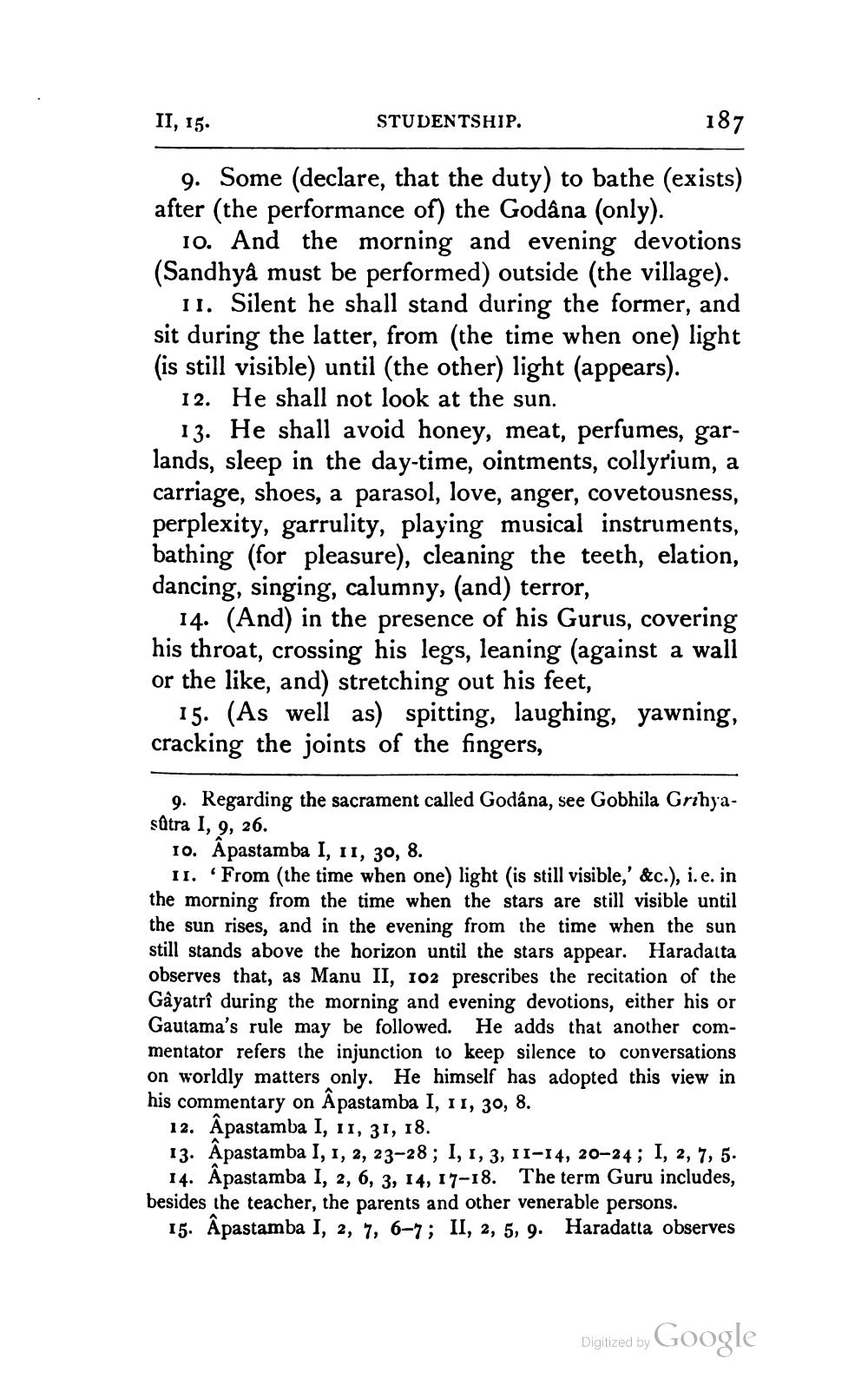________________
II, 15.
STUDENTSHIP.
187
9. Some (declare, that the duty) to bathe (exists) after (the performance of) the Godâna (only).
10. And the morning and evening devotions (Sandhyâ must be performed) outside (the village).
11. Silent he shall stand during the former, and sit during the latter, from the time when one) light (is still visible) until (the other) light (appears).
12. He shall not look at the sun.
13. He shall avoid honey, meat, perfumes, garlands, sleep in the day-time, ointments, collyrium, a carriage, shoes, a parasol, love, anger, covetousness, perplexity, garrulity, playing musical instruments, bathing (for pleasure), cleaning the teeth, elation, dancing, singing, calumny, (and) terror,
14. (And) in the presence of his Gurus, covering his throat, crossing his legs, leaning (against a wall or the like, and) stretching out his feet,
15. (As well as) spitting, laughing, yawning, cracking the joints of the fingers,
9. Regarding the sacrament called Godâna, see Gobhila Grihyasutra I, 9, 26.
10. Apastamba I, II, 30, 8.
II. From the time when one) light (is still visible,' &c.), i.e. in the morning from the time when the stars are still visible until the sun rises, and in the evening from the time when the sun still stands above the horizon until the stars appear. Haradatta observes that, as Manu II, 102 prescribes the recitation of the Gayatrî during the morning and evening devotions, either his or Gautama's rule may be followed. He adds that another commentator refers the injunction to keep silence to conversations on worldly matters only. He himself has adopted this view in his commentary on Âpastamba I, 11, 30, 8.
12. Āpastamba I, 11, 31, 18. 13. Apastamba I, 1, 2, 23-28; 1, 1, 3, 11-14, 20-24; 1, 2, 7, 5.
14. Apastamba I, 2, 6, 3, 14, 17-18. The term Guru includes, besides the teacher, the parents and other venerable persons.
15. Âpastamba I, 2, 7, 6–7; II, 2, 5, 9. Haradatta observes
Digjized by Google




